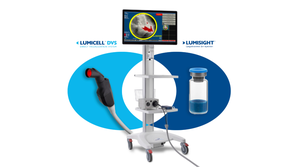January 20, 2016
After having a good year last year, the tide seems to be turning for Fitbit in 2016. The company's stock is now trading at $17.78--a 65% drop from its August 2015 peak of $51.64. A new lawsuit has been filed by investors accusing the company of possible breaches of fiduciary duty by its management.
Qmed Staff
 Things were going so well for Fitbit. Now its stock is cratering--it is trading at slightly more than half of its roughly $30 IPO price.
Things were going so well for Fitbit. Now its stock is cratering--it is trading at slightly more than half of its roughly $30 IPO price.
The company also finds itself fending off a growing number of lawsuits, the most recent of which accuses the company's officers and directors of misrepresenting or failing to disclosing that the heart rate monitoring technology used in the company's Charge HR and Surge products was inaccurate. While that allegation was mirrored in a recent class-action lawsuit, the most recent class-action suit intends to join Fitbit shareholders who have invested in the company since its IPO.
The latest lawsuit was filed by former United States Securities and Exchange Commission attorney Willie Briscoe, now of The Briscoe Law Firm, PLLC joined with the securities litigation firm of Powers Taylor LLP.
Earlier in the month, yet another lawsuit had been filed against the company, this one from the investment law firm Hagens Berman. That suit alleges, in part:
As a result of Defendants' false and/or misleading statements, Fitbit securities traded at inflated prices. However, after disclosure of Defendants' false and/or misleading statements, Fitbit's stock suffered a precipitous decline in market value, thereby causing significant losses and damages to Plaintiff and other Class members.
Already in 2016, the company's stock has fallen 40%--likely for a number of reasons. First of all, its new Blaze smartwatch left analysts unimpressed. Second, the company's stock also fell after a lawsuit was filed on February 5 alleging the company of lying to its customers about the accuracy of its heart-rate monitoring technology. Finally, the company is facing growing competition in the wearables spaces--most recently from Under Armour, which has become increasingly competitive after its 2013 acquisition of Map My Fitness. Recently, the company announced Health Box, a $400 fitness system that integrates a wrist-based activity tracker, a traditional chest-based heart rate strap, and a wireless scale.
Last year, the analyst firm IDC estimated that Fitbit's global market share in the wearables domain had dropped from 32.8% in the third quarter of 2014 to 22.2% in the same quarter of 2015.
Participate in a medical device companies regulatory boot camp at MD&M West, February 9-11 at the Anaheim Convention Center in Anaheim, CA. |
About the Author(s)
You May Also Like


